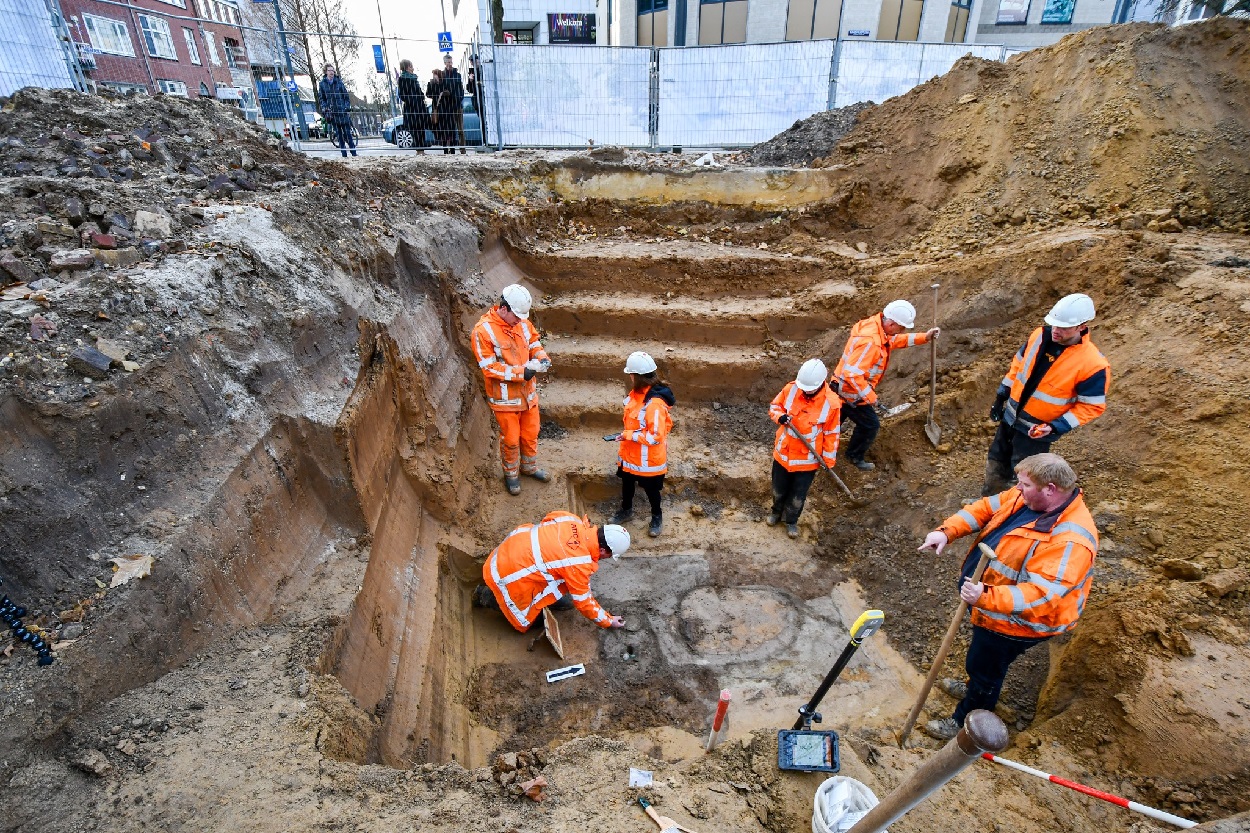Archaeologists have found the earliest evidence of Roman settlement in Heerlen by uncovering a burial containing the remains of a Roman soldier.
Heerlen is a city and a municipality in the southeast of the Netherlands. During the early 1st century AD, the Romans established a military settlement named Coriovallum at the crossing of two Roman roads: Cologne to Boulogne, and Xanten to Trèves via Heerlen and Aix-la-Chapelle.
By the mid-1st century AD, the settlement expanded into a significant Roman town and became a centre for a flourishing coarse-ware industry. Coriovallum experienced a decline between the 3rd and 4th centuries, during which a late Roman fort was built but subsequently abandoned by the 5th century AD.
A recent excavation in the Raadhuisplein (town square) uncovered a pit containing Heerlen’s initial settlement phase. Within the pit was a La Tène bracelet fragment, pottery shards, and three intact Roman Terra Sigillata plates.
According to archaeologists, the shape and deeper layers of the pit indicate that it was a burial from the Roman period. A closer examination of the plates revealed that they had a nickname inscribed with the letters FLAC. Based on these finds, the archaeologists suggest that the burial was a Roman soldier called Flaccus.
Jordy Clemens from Alderman Culture & Heritage, said: ”Today, evidence was found of Roman habitation in the time of Emperor Augustus. A unique discovery that not only teaches us more about our past, but also shows how unique the story of Roman Heerlen is for the Netherlands.”
Header Image Credit : Gemeente Heerlen
Sources : Gemeente Heerlen





